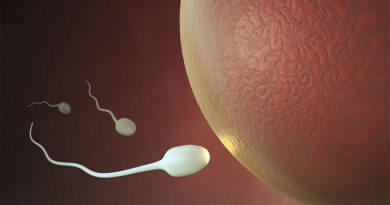The Effect of Lactation on Ovulation and Fertility
Lactation is an important part of a woman’s reproductive system. It has an impact on ovulation, fertility, and the likelihood of conception. This becomes a source of anxiety for many new mothers: when can they get pregnant after giving birth? Lactation affects ovulation and impacts fertility.
How Lactation Affects Ovulation
Lactation influences ovulation mainly by means of lactational amenorrhea. This is known as amenorrhea, or being without periods from the fact you are a nursing mother. Prolactin is the primary hormone that accomplishes this.
- Prolactin and Ovulation: When you become a mother, the body secretes a lot of prolactin, This hormone stimulates the production of milk as well as inhibits ovulation. It suppresses secretion of gonadotropin-releasing hormone (GnRH), which is necessary for ovulation.
- Suppression of the Menstrual Cycle: GnRH decreases, the pituitary gland secretes less luteinizing hormone (LH) and follicle-stimulating hormone (FSH). These hormones assist in the maturation of eggs in the ovaries. This either delays or completely halts the ovulation process.
The impact of lactation on ovulation varies by factors like how often the baby is breastfed and for how long, and whether the baby is introduced to supplemental feeding.
Fertility During Lactation
Breastfeeding lowers fertility [Female Infertility Treatment in Bangalore] but is not a guarantee against pregnancy. While women can get pregnant while breastfeeding, they can do so any time they are not exclusively breastfeeding.
- Exclusive Breastfeeding and Fertility: Women who breastfeed their babies exclusively (breast milk only, no formula or solid food) tend to experience a longer phase of lactational amenorrhea. Frequent suckling from the baby keeps levels of this hormone high, postponing ovulation.
- Partial Breastfeeding and Return of Fertility: When Moms start supplementing their babies with formula or solid food or keep long intervals between feedings, prolactin levels drop. It is this decline that enables menstrual cycles and fertility [Female Infertility Treatment in Guwahati] to return.
- Signs of Returning Fertility: Some women will experience some spotting or irregular periods before their complete menstrual cycle returns. These symptoms could indicate that ovulation has resumed.
How Long Does Lactation Suppress Fertility?
Lactational amenorrhea lasts different amounts of time for different women. How long this suppression of ovulation continues for varies according to several factors:
- Feeding Frequency: Frequent feedings prolong the period of ovulatory suppression.
- Night Feedings: Nighttime nursing increases prolactin, continuing the gap in fertility [Female Infertility Treatment in Hyderabad].
- Baby’s Age: As babies develop and start eating solid foods, breastfeeding diminishes, and ovulation resumes.
On average, fertilization and ovulation returns after six months to one year, although some woman may ovulate sooner.
Benefits of Natural Child Spacing
Lactation-induced infertility [Female Infertility Treatment in Koramangala] provides a natural method of child spacing, allowing a mother’s body time to rejuvenate before another pregnancy. Benefits include:
- Better Maternal Health: Less risk of complications post child birth.
- Optimal Child Development: Greater focus on baby’s nutritional and emotional needs.
- Reduced Risk of Pregnancy-Related Anemia: Give time for iron levels to renew.

Understanding the Impact of Lactation on Ovulation and Fertility
Lactation is a primary suppressor of ovulation and fertility [Female Infertility Treatment in Banjara Hills]. Exclusive breastfeeding may postpone ovulation for several months, but as feeding patterns shift, fertility slowly returns. Women who want to prevent pregnancy need to use suitable birth control methods, and women who are trying for another child should look for fertility to return. Women can make informed reproductive choices Understanding this relationship makes informed reproductive choices for women and it leads to better health for mother & baby.
For Online Consultation Call or WhatsApp +91-9995202100
Fill up Online Consultation form
F.A.Q
Yes, especially in the early months, when your body is producing hormones such as elevated prolactin levels that can suppress ovulation.
It’s less likely, of course, because ovulation is disrupted, but it gets possible if ovulation reoccurs before menstruation.
Lactational amenorrhea exists for at least the first 6 months but may still vary from the individual to the respective factors.
Fertility typically returns once breastfeeding stops, though the timing varies for each woman depending on hormonal changes.
No, breastfeeding by itself doesn’t cause infertility, but it can delay the return to normal menstrual cycles and temporarily affect fertility.





